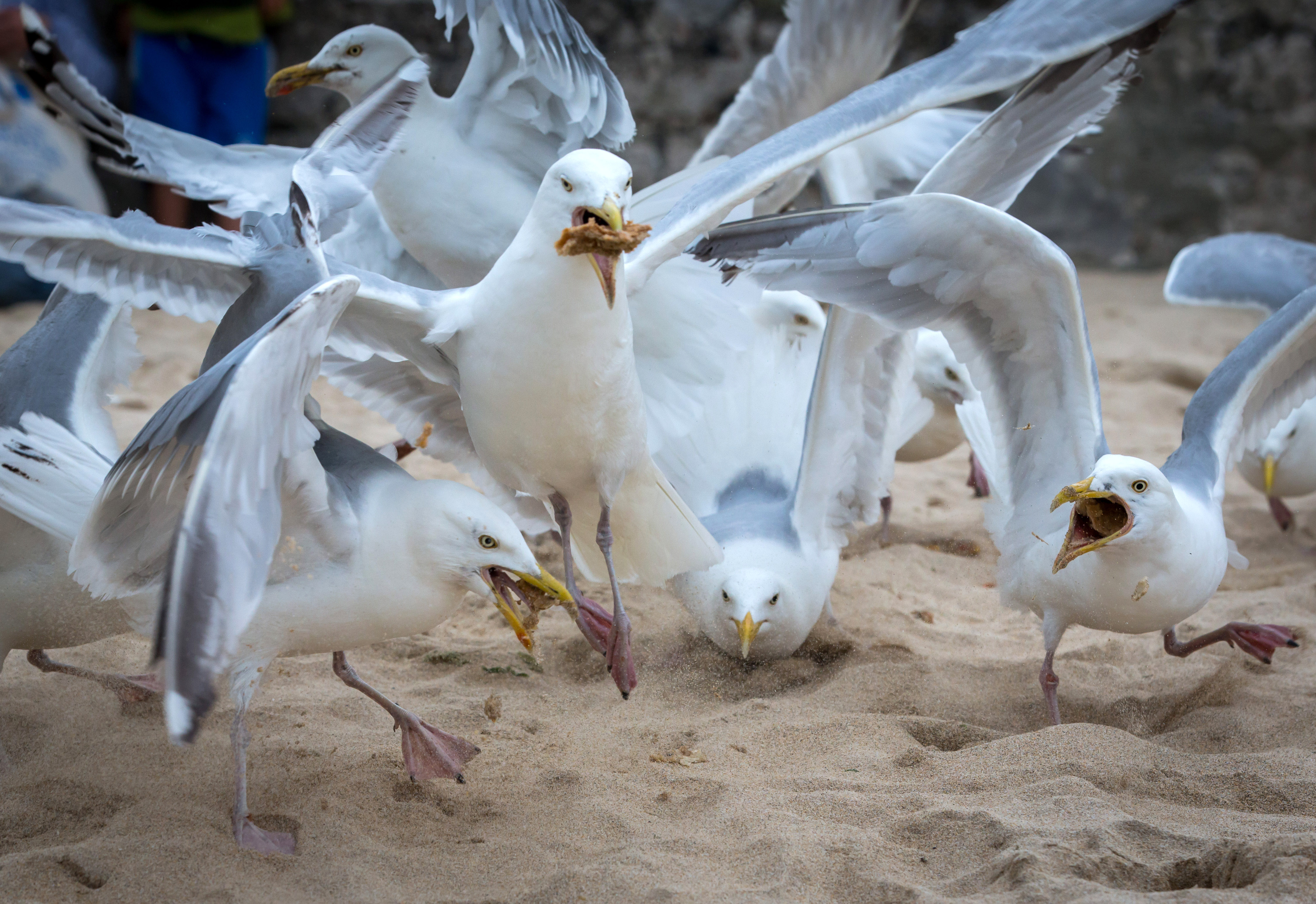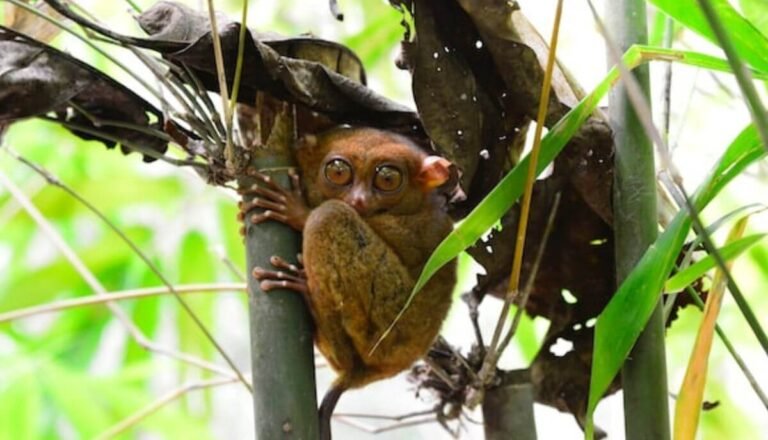Are Seagulls Dangerous? Do Seagulls Attack Humans?
Seagulls are one of the most ubiquitous birds in North America. They’re also some of the most annoying, with their incessant squawking and begging for food. But are they dangerous?
Do seagulls attack humans?
The short answer is yes, seagulls can be dangerous. But it’s important to remember that these birds are wild animals, and like all wild animals, they can be unpredictable.
Seagull attacks on humans are relatively rare, but they do happen. Generally speaking, seagulls will only attack humans if they feel threatened or if they’re defending their nest or young chicks.
We’ve all seen the videos of seagulls stealing food right out of people’s hands. And while it may be funny to watch, it’s not so funny when it happens to you. So are seagulls dangerous?
Do they attack humans?
The short answer is yes, seagulls can be dangerous. They are wild animals and if they feel threatened, they will attack.
However, attacks on humans are rare and usually only happen if the person is provoking the bird or trying to steal its food.
If you’re lucky enough to live near a beach, you’ve probably seen how aggressive seagulls can be when it comes to protecting their young. They will swoop down and try to peck anyone who gets too close to their nests.
And while this behavior is natural, it can still be scary for those who are caught in the middle of it.
So what should you do if you find yourself face-to-face with an angry seagull? The best thing to do is back away slowly and give the bird some space.
Don’t try to run away or make any sudden movements that could startle the bird and cause it to attack. If a seagull does attack, cover your head and face with your arms and hands until it stops pecking at you.
In general, as long as you give them their space, seagulls will leave you alone.
Just remember that they are wild animals and should never be approached too closely or fed by hand.
Man Was Held Hostage for a Week by Seagulls | This Morning
Why Do Seagulls Attack Humans?
There are many reasons why seagulls might attack humans. One reason could be that the seagull is protecting its nest and is feeling threatened by the human. Seagulls have also been known to steal food from humans, so if a person has food that a seagull wants, the bird may try to take it by force.
Additionally, some seagulls may simply be aggressive by nature and see humans as potential prey. Whatever the reason, it is important to remember that seagulls are wild animals and can be dangerous if they feel threatened or provoked.
Do Seagulls Peck Humans?
While seagulls are not typically known to be aggressive birds, there have been instances of them pecking humans. In most cases, this is due to the bird feeling threatened or territorial. If a seagull is swooping down on you or has made physical contact with you, it’s best to walk away from the situation calmly.
However, if the bird continues to act aggressively, you may need to defend yourself by waving your arms or using an umbrella to scare it off.
What to Do If a Seagull Approaches You?
If you see a seagull approaching you, the best thing to do is to stay calm. Seagulls are attracted to movement, so if you wave your arms or try to run away, they will probably just follow you. Instead, stand still and wait for the seagull to lose interest.
If it does not fly away after a minute or two, then slowly back away while continuing to face the seagull. Finally, if the seagull is still following you or gets too close for comfort, throw something at it (like a stick or stone) in order to scare it off.
How Do You Stop Seagulls Swooping at You?
If you’re one of the many people who have had a seagull swoop down and snatch food right out of your hand, you know how frustrating it can be. Luckily, there are a few things you can do to deter them.
The first step is to identify what type of seagull is swooping at you.
There are several species of seagulls, but the most common ones in North America are the herring gull and the great black-backed gull. Herring gulls are larger than most other types of gulls, with a wingspan of up to 2.5 feet. They’re also one of the more aggressive types of gulls when it comes to food.
Great black-backed gulls are even larger, with a wingspan of up to 3 feet. These birds are known for their powerful beaks and they’re not afraid to use them – they’ve been known to swoop down and bite people!
Once you’ve identified the type of seagull that’s causing you problems, take steps to protect yourself from them.
If possible, avoid areas where they congregate – this includes beaches, docks, and marinas. If you must go into these areas, keep your food well away from the edge where the birds can reach it. Carry umbrellas or wear hats if possible – this will help deter them from landing on your head or shoulders in search of food.
And always keep an eye on your food when you’re outside – don’t let yourself become an easy target!

Credit: fortune.com
Do Seagulls Carry Disease
Seagulls are often associated with dirty beaches and contaminated food. But are these birds really disease-carriers?
It is true that seagulls can harbor some harmful bacteria in their body, but there is no evidence that they can transmit these diseases to humans.
In fact, most of the diseases that seagulls carry are not harmful to humans at all.
The main concern with seagulls and disease is actually the reverse: humans infecting seagulls. Seagulls are very susceptible to avian influenza, which can be deadly to them.
So if you see a sick or dead seagull, it’s best not to touch it, and to call your local animal control or wildlife rehabilitation center for help.
Can Seagulls Kill Humans
Can seagulls kill humans? This is a question that has long been debated. There are those who believe that seagulls are capable of killing humans and there are those who don’t believe it’s possible.
So, which is it?
There have been no documented cases of seagulls killing humans. However, there have been instances where seagulls have caused serious injury to people.
In one instance, a seagull flew into a woman’s face, causing her to lose an eye. In another instance, a seagull attacked a man and caused him to suffer severe facial injuries. While these incidents are certainly alarming, they do not prove that seagulls can kill humans.
It is important to remember that seagulls are wild animals and should be treated as such. They can become aggressive if they feel threatened or if they are protecting their young. If you encounter a seagull, it is best to give it a wide berth and avoid making any sudden movements that could startle the bird.
Do Seagulls Eat Dead Humans
Do Seagulls Eat Dead Humans?
The answer is both yes and no. While seagulls are scavengers and will eat almost anything, they generally prefer to eat fish.
But if there’s a dead human body available, they will go for that too. In fact, one study found that about 10 percent of the seagulls’ diet in urban areas is composed of human flesh!
Can You Get Sick from Touching a Seagull
If you’re asking yourself whether or not you can get sick from touching a seagull, the answer is unfortunately, yes. Although they may look harmless, these birds can actually carry a variety of diseases that can be easily transmitted to humans through simple contact.
One of the most common diseases that seagulls carry is salmonella.
This bacteria is typically found in the bird’s digestive tract and can be passed on to humans if there is any contact between the two. The symptoms of salmonella poisoning include vomiting, diarrhea, and fever, all of which can be quite severe.
Another disease that seagulls often carry is avian influenza.
This virus is highly contagious and can cause serious respiratory illness in humans. The symptoms of avian influenza include fever, coughing, and difficulty breathing. In some cases, this virus can even lead to death.
So, if you come into contact with a seagull, it’s important to wash your hands thoroughly afterwards and avoid touching your face or eating anything until you’ve done so. By taking these simple precautions, you’ll help reduce your risk of getting sick from these harmful birds.
What to Do If a Seagull Bites You
If you are unfortunate enough to be bitten by a seagull, there are some things you should do. First, clean the wound with soap and water. Apply pressure if the bleeding is constant.
If it is a deep puncture wound or if bone is visible, seek medical attention immediately. Ice can be applied to reduce swelling.
Seagull bites are not usually serious, but they can become infected easily due to the bird’s dirty mouth.
The bacteria in their mouths can cause severe infections in humans, so it is important to take care of the wound right away and monitor it closely.
Why are Seagulls Not Scared of Humans
Most people think of seagulls as pesky birds that steal food from unsuspecting picnickers. But have you ever wondered why these birds aren’t scared of humans?
It turns out that seagulls have evolved to take advantage of human activity.
They’ve learned that humans are a source of food, and they’ve become quite adept at stealing our lunch!
This behavior has allowed them to thrive in urban areas, where there is a plentiful supply of food. So the next time you see a seagull swooping in for your sandwich, remember that it’s just doing what comes naturally!
Has a Seagull Ever Killed Anyone
No, a seagull has never killed anyone that we know of. But they are capable of causing serious injury if they attack people. Their beaks can break skin and their claws can cause deep puncture wounds.
They are also known to steal food right out of people’s hands, which can lead to arguments and even fights.
Seagulls Attacking Humans for Food
It’s no secret that seagulls can be aggressive when it comes to food. They’ve been known to swoop down and snatch food right out of people’s hands, and they’re not above stealing a sandwich or two from an unsuspecting picnic-goer. But what drives these birds to such desperate measures?
For one thing, seagulls are opportunists. They’re always on the lookout for an easy meal, and if they see someone with food, they’re going to go for it. It doesn’t matter if the person is a child or an adult – if there’s food involved, a seagull will go for it.
Another factor that contributes to seagull aggression is their natural scavenging instincts. In the wild, seagulls feed on carrion and other dead animals, so they’re used to getting their meals second-hand. This can lead them to view humans as potential sources of food, especially if they see us eating something tasty.
Lastly, seagulls are simply territorial creatures. They fiercely protect their nests and young, and will attack anything that comes too close – including people who just happen to be in the wrong place at the wrong time.
So next time you’re at the beach or park and you see a group of hungry seagulls circling overhead, be sure to keep your food close by!
Conclusion
Seagulls are not generally considered to be dangerous animals, but there have been some reports of them attacking humans. In most cases, these attacks seem to be motivated by food, either because the gulls are hungry or because they think that the human is trying to steal their food. However, there have also been some reports of seagulls attacking people for no apparent reason.
If you do find yourself being attacked by a seagull, the best thing to do is to try to scare it off by making loud noises or throwing something at it.




![Do Lions And Tigers Get Along? [All You Need to Know]](https://proanimalguide.com/wp-content/uploads/2022/11/c81d5e2f96e14ee4a613da6be65bea5e-768x384.jpg)


